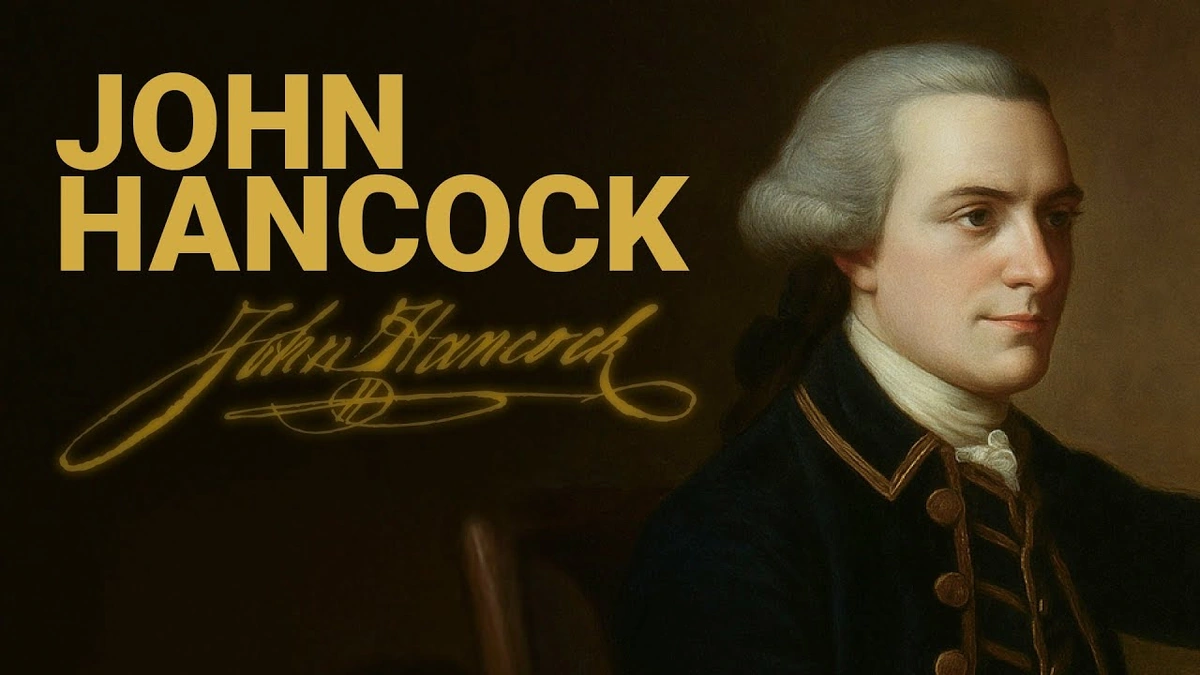John Hancock . The name itself is practically synonymous with a signature, a bold and flamboyant declaration on any document. But here’s the thing: he was so much more than just a famous autograph. What fascinates me is the why behind his lasting impact. Why is his name the one we all remember when so many others signed the Declaration of Independence? Let’s dive deeper, shall we?
The Merchant Prince | Hancock’s Pre-Revolutionary Power

Before the revolution, John Hancock was one of the wealthiest men in the Thirteen Colonies. He inherited a thriving mercantile business from his uncle, and he expanded it into a powerhouse. Think shipping, imports, exports – he had his fingers in practically everything. But, and this is a big but, his business interests put him at odds with British policies. British trade restrictionsand taxes, like the Stamp Act, directly impacted his bottom line. So, it wasn’t just about abstract principles of liberty; it was also about cold, hard cash. This is where it starts to get interesting. He wasn’t just some high-minded patriot; he was a businessman fighting for his survival.
From Smuggler to Symbol | Hancock’s Defiance
Let’s be honest, John Hancock wasn’t exactly playing by the rules. Some historians even label him a smuggler. He allegedly evaded British customs, bringing in goods without paying taxes. It may sound scandalous but smuggling was a way to resist the oppressive taxes. The British seizure of his ship, the Liberty, further fueled his resentment and solidified his commitment to the revolutionary cause. This incident wasn’t just a legal matter; it became a symbol of British overreach and a rallying cry for colonists. And it’s a vital part of Hancock’s transformation from wealthy merchant to revolutionary icon.
The Bold Signature | Hancock’s Act of Defiance
Then there’s that signature. Large, flamboyant, and impossible to miss. Hancock’s signature on the Declaration of Independence wasn’t just a name on a document; it was a deliberate act of defiance. He wanted King George III to be able to see it without his spectacles. According to historical accounts, he said something to the effect of, “There, I guess King George will be able to read that!” It was a powerful statement of commitment, a public declaration of treason against the crown. This courage is what makes him a central figure in American history .
Beyond the Autograph | Hancock’s Political Leadership
Here’s where people often miss the mark. John Hancock wasn’t just a signer; he was a leader. He served as President of the Continental Congress, a crucial role during the revolution. He later became the first governor of Massachusetts, shaping the early policies of the newly formed state. He understood the need for a strong central government, eventually supporting the ratification of the Constitution after initially being skeptical. His understanding and contribution of colonial resistance movements cannot be understated. What truly distinguishes him is his dedication to public service and his leadership.
And, let’s be real, Hancock’s commitment can be seen in many aspects of his life. You can find information on his biography on the Britannica website.
Legacy and Lasting Impact
Hancock’s legacy extends far beyond his famous signature. He represents a complex and fascinating figure in American history. He was a wealthy merchant, a smuggler, a revolutionary, and a political leader. His story is a reminder that history is rarely black and white. He championed the cause of independence, becoming an enduring symbol of the American Revolution. As one of the founding fathers, his contributions to the birth of a new nation are significant, solidifying his place in American history. Here is an interesting fact: The Hancock’s name is also attached to insurance, and you can find information at: L.A. DWP .
So, the next time you hear the name John Hancock , remember that there’s more to the story than just a signature. It’s about a man who risked everything for what he believed in, a man whose bold actions helped shape the course of American history.
FAQ About John Hancock
Why is John Hancock’s signature so famous?
His signature is so famous because of its size and prominence on the Declaration of Independence, making it a symbol of defiance against British rule.
Was John Hancock really a smuggler?
While not definitively proven, there’s strong evidence suggesting he engaged in smuggling to evade British trade restrictions.
What role did John Hancock play in the American Revolution?
He served as President of the Continental Congress and later as the first governor of Massachusetts, playing a key role in the revolution and the formation of the new government.
Did John Hancock support the Constitution?
Initially skeptical, he eventually supported the Constitution after advocating for the inclusion of a bill of rights.
What were John Hancock’s business ventures?
John Hancock inherited and expanded a successful mercantile business involved in shipping, imports, and exports.
Is there a John Hancock insurance company?
Yes, there is. It is a separate entity that adopted the name to capitalize on the patriot’s recognition.




